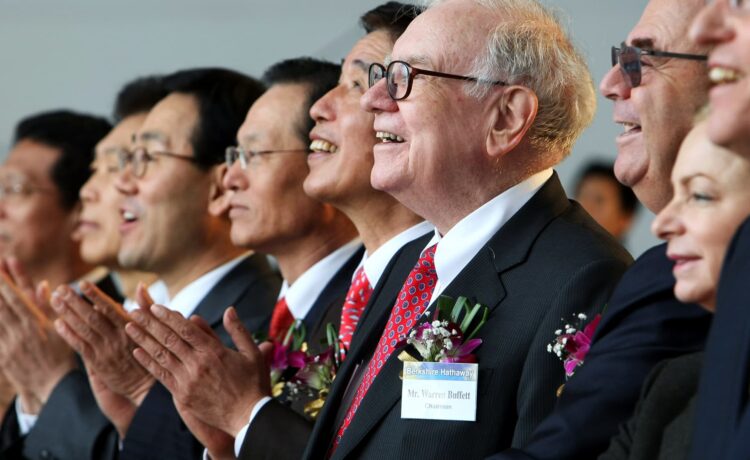This week’s violent global market meltdown started in Japan — where Warren Buffett has big investments — but the damage was limited. The Nikkei 225 index , a benchmark for Japanese stocks, plunged 12.4% on Monday, its worst day since “Black Monday” in 1987, triggering a domino effect globally. The sell-off was triggered by a small rate hike by the Bank of Japan , lifting rates to their highest in 15 years and unwinding of the yen “carry trade.” But the market managed to recoup most of the steep losses and closed the week down only 2.5%. The stocks Buffett holds cratered as much as 30% initially, but bounced back by the end of the week along with the broader market. Berkshire Hathaway , Buffett’s holding company, owns an 8% stake in each of the five leading Japanese trading houses— Itochu , Marubeni , Mitsubishi , Mitsui and Sumitomo — with its total investment worth about $20 billion. Mitsui fared the worst this week, down 6.2%, while Mitsubishi was the outperformer with a decline of just 1.7%. The Japanese trading houses also reported second-quarter earnings earlier this week, mostly exceeding analyst expectations and maintaining their full-year guidance. Year to date, shares of Itochu and Mitsubishi are up by more than 10%, while Marubeni, Mitsui and Sumitomo have risen less than 10%. $8 billion paper profit The Oracle of Omaha first started selling Japanese debt in 2019 and used the proceeds to fund Berkshire’s purchase of stakes in five local mini-conglomerates, known as sogo shosha , that import everything from energy and metals to food and textiles into resource-scarce Japan. By issuing yen bonds, Buffett has been able to limit currency risk when buying stocks overseas. The dollar has strengthened against the yen by more than 30% since 2019 despite the spike in the Japanese currency in the past two weeks. Berkshire had made unrealized gains of more than $8 billion in the five trading houses as of the end of 2023. Buying more? Buffett disclosed his initial 5% investment in each of the companies on his 90th birthday in 2020. He said that it took roughly 12 months to acquire the stakes through regular purchases on the Tokyo Stock Exchange. The 93-year-old investment guru has pledged that he will not take his stakes beyond 9.9% unless approved by each company’s board of directors. Given that his stake is currently at about 8%, it’s likely the legendary investor was picking up bargains during this week’s sell-off. In April, the Omaha-based Berkshire priced additional yen bonds worth $1.7 billion, a sign that Buffett could be gearing up to put more capital in Japan. Away from Japan, Buffett was in a selling mood in the second quarter. Last week, ahead of the global rout, it was revealed that Buffett dumped a lot of stock, including half of his Apple stake , and raised an unprecedented cash fortress for Berkshire in the second quarter. Many Buffett watchers viewed his prescient moves as a negative call on the markets and the economy.

















